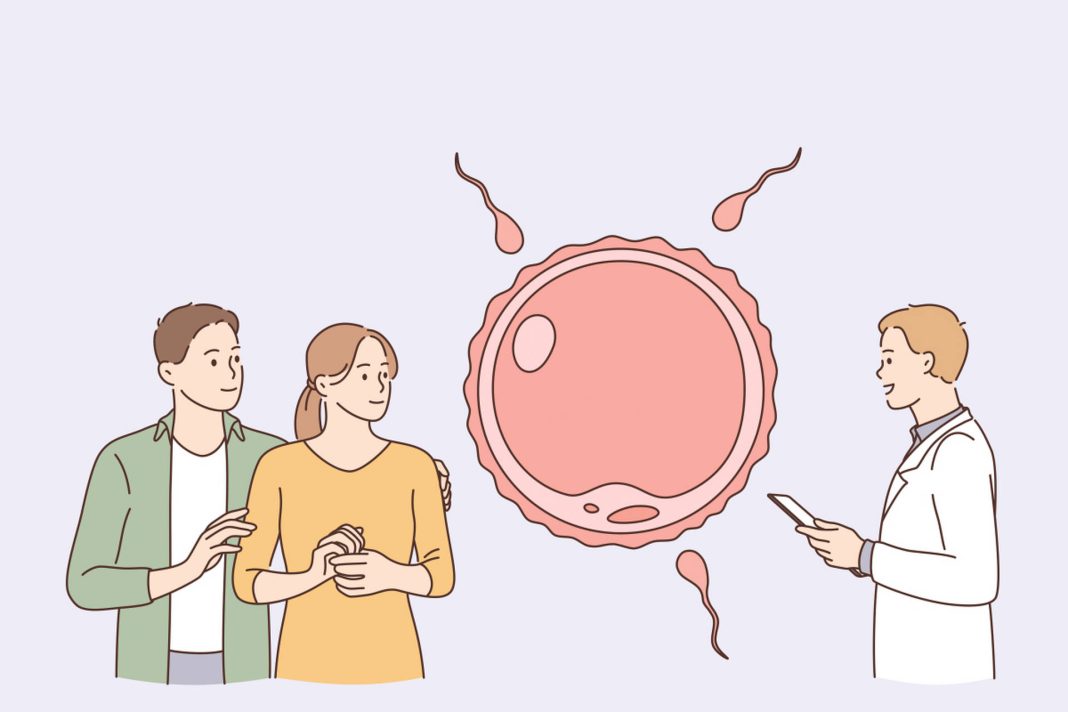The fallopian tubes play an extremely important role in natural pregnancy. They transport sperm, collect eggs, and transport fertilized eggs into the uterine cavity. The fallopian tubes are also where sperm and eggs meet, and whether the fallopian tubes are clear or blocked often determines the success or failure of pregnancy.
When a woman has blocked fallopian tubes, it can lead to ovulation dysfunction, causing ovulation disorders or difficulties, which in turn affect the union of sperm and egg, directly threatening the normal fertility of most patients and leading to infertility for many. Therefore, blocked fallopian tubes are bad news for families trying to conceive.
Blocked fallopian tubes mainly cause female infertility, accounting for 25% to 35% of female infertility cases. So, what are the causes of fallopian tube blockage?
1. Endometriosis
Endometriotic lesions can cause structural damage to the fallopian tubes, resulting in blockage. Furthermore, endometriotic lesions can also secrete prostaglandins, interfere with tubal peristalsis, disrupt the union of sperm and egg, thus causing infertility.
2. Inflammatory and Infectious Factors
Inflammation and infection can lead to salpingitis, especially chronic salpingitis is a major cause of fallopian tube blockage and dysfunction. Infections are often caused by sexual transmission, miscarriages, or childbirth injuries, leading to the accumulation of pus, fluid, and pelvic adhesions in the fallopian tubes.
3. Inappropriate Sexual Activities
Factors like engaging in sexual intercourse during menstruation, unhygienic sexual practices, or prolonged vaginal bleeding can lead to artificial or disease-caused fallopian tube blockages.
4. Congenital Abnormalities
Congenital abnormalities of the fallopian tubes, including segmental/complete absence of the tubes, overly narrow or twisted tubes, tubes lacking fimbriae, can affect the transport of sperm, eggs, or embryos, leading to infertility or ectopic pregnancies.
5. Infection due to Miscarriage
During miscarriage or childbirth, women are susceptible to infections, which can cause scarring in the fallopian tubes, leading to blockages or damage, affecting the health of the fallopian tubes.
6. Pelvic Adhesions
Pelvic adhesions can easily cause the fallopian tubes to adhere to other tissues, resulting in blockages and significant distress for women.
Treatment of Fallopian Tube Blockages
1. Medication for Fallopian Tube Blockages
If the fallopian tubes are only partially obstructed due to mild inflammation or adhesions, conservative treatment is possible. For instance, injecting anti-inflammatory drugs into the tubes via laparoscopy can help alleviate the blockage. Taking herbal medicine like Fuyan Pill can also be effective.
2. Surgical Treatment
Currently, the most commonly used clinical approach is performing fallopian tube recanalization through laparoscopy to treat tube blockages. This procedure can effectively restore tubal patency and achieve good treatment outcomes.
3. In Vitro Fertilization (IVF)
In vitro fertilization, commonly known as IVF, involves fertilizing egg cells and sperm outside the body, allowing for early embryo development before transferring them to the uterus for pregnancy.
For patients with fallopian tube blockages deciding on treatment, a comprehensive evaluation of fertility is crucial. Assisted reproductive technologies and surgery are the main treatment options, and the treatment plan can be chosen according to individual circumstances.


